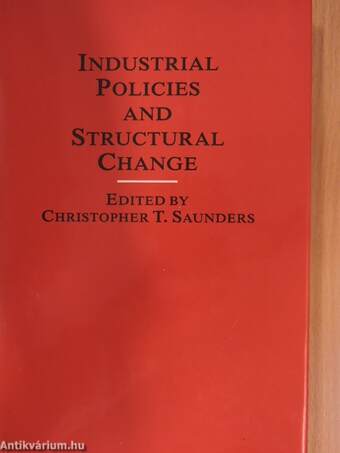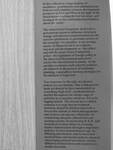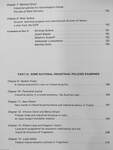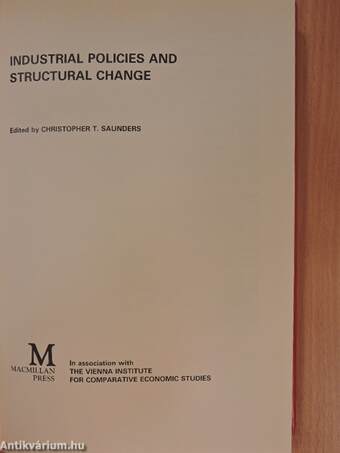1.067.317
kiadvánnyal nyújtjuk Magyarország legnagyobb antikvár könyv-kínálatát

VISSZA
A TETEJÉRE
JAVASLATOKÉszre-
vételek
Industrial policies and structural change
| Kiadó: | Macmillan Press, Ltd. |
|---|---|
| Kiadás helye: | London |
| Kiadás éve: | |
| Kötés típusa: | Varrott keménykötés |
| Oldalszám: | 369 oldal |
| Sorozatcím: | |
| Kötetszám: | |
| Nyelv: | Angol |
| Méret: | 24 cm x 16 cm |
| ISBN: | 0-333-44934-7 |
| Megjegyzés: | További szerzők a kötetben. |
naponta értesítjük a beérkező friss
kiadványokról
naponta értesítjük a beérkező friss
kiadványokról
Fülszöveg
In this collection a large number of academics, practitioners and administrators from several countries reassess development prospects in East and West in the light of the disturbances marking the last ten years, and having in mind the continuing uncertainties about the future. The subject most frequently dealt with is government action to influence structural change and national competitiveness by the selective promotion of particular sectors of the economy-by subsidies or tax arrangements, by financial aid to investment, research and development or-the oldest and still the major form of industrial policy-the regulation of foreign policy in the interest of the national and (more rarely) the international economy. In the socialist economies such selective policies are inherent in the process of economic planning, especially in forming strategies for the médium or long term. Two responses to the risks of selective policies are paramount. One is that government aid should be less... TovábbFülszöveg
In this collection a large number of academics, practitioners and administrators from several countries reassess development prospects in East and West in the light of the disturbances marking the last ten years, and having in mind the continuing uncertainties about the future. The subject most frequently dealt with is government action to influence structural change and national competitiveness by the selective promotion of particular sectors of the economy-by subsidies or tax arrangements, by financial aid to investment, research and development or-the oldest and still the major form of industrial policy-the regulation of foreign policy in the interest of the national and (more rarely) the international economy. In the socialist economies such selective policies are inherent in the process of economic planning, especially in forming strategies for the médium or long term. Two responses to the risks of selective policies are paramount. One is that government aid should be less concentrated on everything 'high-tech'; modernisation is needed throughout the whole rangé of activities in economies which are felt to be lagging behind. The second more radical response is to ürge that government functions should be limited to provide a favourable climate in which managements and workers can operate efficiently: by establishing adequate educational and training systems; by promoting R & D, and investment in innovation; by reducing markét imperfections through competition policies; by freer international trade; by diffusing information; and by fiscal and social policies and income policies aimed at encouraging rational investment criteria, diffusion of innovations and sensitivity to markét demands. VisszaTémakörök
- Közgazdaságtan > Gazdaságpolitika
- Idegennyelv > Idegennyelvű könyvek > Angol > Műszaki
- Idegennyelv > Idegennyelvű könyvek > Angol > Egyéb
- Idegennyelv > Idegennyelvű könyvek > Angol > Közgazdaságtan > Gazdaságpolitika
- Műszaki > Ipar > Iparpolitika
- Műszaki > Technika > Kutatás, fejlesztés
- Mezőgazdaság > Mezőgazdaság általában > Agrárgazdaság
- Mezőgazdaság > Mezőgazdaság általában > Agrárpolitika
- Műszaki > Idegennyelv > Angol
- Műszaki














